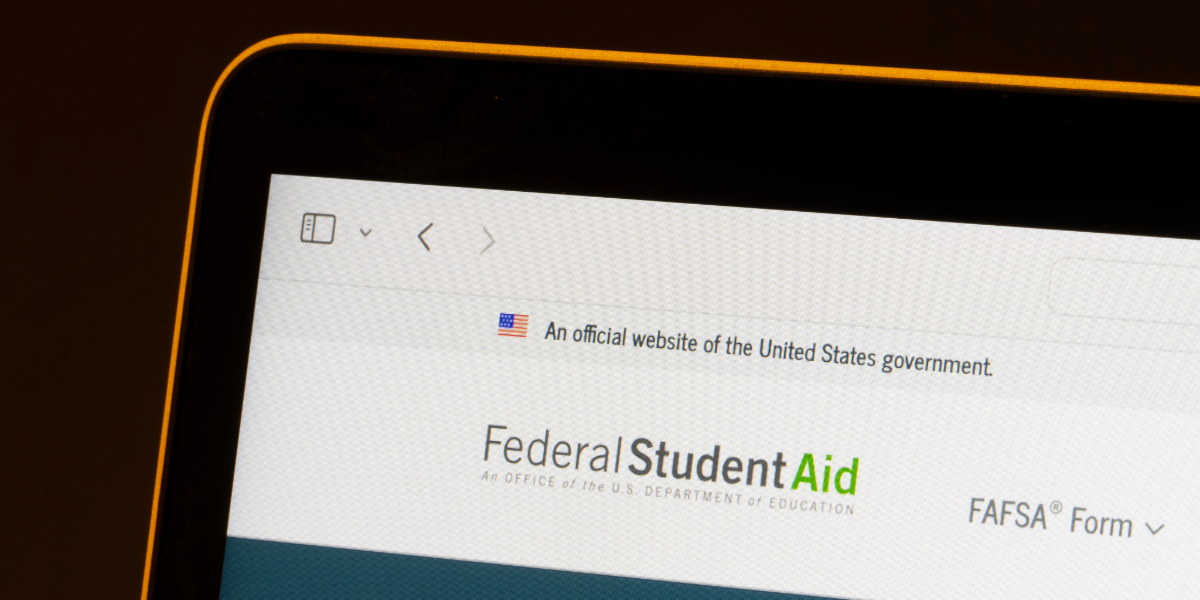How Drug Convictions Affect College Financial Aid in Arizona
We’re Here to Help You – Talk to Our Legal Team Immediately
For many students and their families, college represents both opportunity and financial challenge. Financial aid, including federal loans, grants, and scholarships, plays a key role in making higher education possible. But when a drug conviction enters the picture, everything can change.
In Arizona, students facing a drug-related charge may not realize how that single moment can impact their ability to afford college or even receive financial aid at all.
At Guardian Law Group, we understand how important a college education is. As criminal defense attorneys with deep roots in Maricopa County, we often help young people and their families manage the fallout of a drug conviction.
Table of Contents
- FAFSA and Drug Convictions: Changes Affecting Financial Aid Eligibility
- Arizona Drug Charges That Impact Financial Aid Eligibility
- Past Impact of a Drug Conviction on Your Application for Federal Student Aid
- Can You Still Get a Scholarship or State-Based Aid After a Drug Offense?
- Diversion, Expungement, and Rehabilitation Programs for Regaining Eligibility
- Steps to Take If You’re Convicted of a Drug Offense in Arizona
- Legal Defenses for Drug Charges That Affect Pell Grants and Federal Aid
- FAQs: Convicted of a Drug Offense While Applying for Financial Aid
- Important Things to Remember
- How Guardian Law Group Can Help Protect Your Eligibility and Future
This article explains how drug convictions can affect your financial aid, what Arizona students need to know, and what options may be available to reduce the impact.
Whether you or your child has been charged or convicted, reading this article can help you understand your rights and the steps to protect your education and future.
Follow us On
Free Case Evaluation
Free & Confidential Consultation
Don’t Wait – Call Us Now to Speak with an Arizona Criminal Defense Lawyer
► FAFSA and Drug Convictions: Changes Affecting Financial Aid Eligibility
Until recently, students with a drug conviction could lose access to federal student aid entirely. Under the old version of the Free Application for Federal Student Aid (FAFSA), students had to answer questions about prior drug convictions, and a “yes” response could result in aid being denied or delayed.
However, this changed with the FAFSA Simplification Act, which was part of the Consolidated Appropriations Act of 2021. As of July 1, 2023, questions about drug convictions have been removed from the FAFSA form altogether. That means:
- Students are no longer automatically disqualified from receiving federal Pell Grants or student loans because of a drug conviction.
- Federal student aid eligibility is not affected by any past or present drug charges.
- The U.S. Department of Education no longer considers drug-related offenses when evaluating your free application for federal student aid.
This is a major shift. But it does not mean drug convictions have no consequences when it comes to higher education.
► Arizona Drug Charges That Impact Financial Aid Eligibility
Even though federal aid may still be available, many drug charges under Arizona law can still affect college enrollment, scholarships, housing, or other aspects of student life.
In Arizona, a drug offense is typically charged under ARS Title 13, Chapter 34. Common charges that students face include:
- Possession of Marijuana (ARS 13-3405)
- Possession of a Narcotic Drug (ARS 13-3408)
- Possession of Dangerous Drugs (ARS 13-3407)
- Possession of Drug Paraphernalia (ARS 13-3415)
For instance, a student caught with a small amount of ecstasy or Adderall without a prescription could be charged with a felony drug offense. Even misdemeanor convictions can carry serious consequences.
Arizona no longer criminalizes the simple possession of marijuana for adults over 21, but students under that age can still face charges for possession, consumption, or being under the influence.

► Past Impact of a Drug Conviction on Your Application for Federal Student Aid
Before 2021, the FAFSA form specifically asked whether the applicant had been convicted of a drug offense while receiving federal student aid. If the answer was yes, a complicated worksheet would determine your period of ineligibility:
- First offense: Ineligibility for federal aid for one year.
- Second offense: Ineligibility for two years.
- Third offense: Indefinite ineligibility.
Students could regain eligibility early by successfully completing an approved drug rehabilitation program, which required two unannounced drug tests.
Although this rule has changed federally, schools may still have internal rules about student conduct. A conviction might not stop your FAFSA, but it could still affect your place in school or on campus.
► Can You Still Get a Scholarship or State-Based Aid After a Drug Offense?
Not all financial aid comes from the federal government. Many students rely on:
- Institutional scholarships from colleges
- Arizona state-based grants and federal programs
- Private scholarships from foundations or businesses
These sources may still consider your criminal record. For example:
- Some scholarships require a clean background check.
- Schools may conduct reviews following a drug charge.
- Certain professional programs (like nursing or education) may disqualify students convicted of a drug offense.
In Arizona, the Arizona Board of Regents manages state grants like the Arizona Promise Program. While this program generally follows federal rules, individual universities still retain discretion over eligibility.
► Diversion, Expungement, and Rehabilitation Programs for Regaining Eligibility
If you’ve been charged but not convicted, there may still be time to protect your future. Arizona offers pretrial diversion programs for certain low-level drug offenses. These programs are often available to first-time offenders and may result in:
- Charges being dropped after completion of a drug education or rehabilitation program
- No formal conviction being entered on your record
- Improved chances of preserving financial aid and scholarships
In 2021, Arizona also began allowing expungement of certain marijuana-related offenses. Under Proposition 207:
- Individuals convicted of possessing 2.5 ounces or less of marijuana may petition the court for expungement.
- Once expunged, the conviction is treated as if it never occurred.
Guardian Law Group can evaluate whether your case qualifies for diversion or expungement. Acting quickly is important to protecting your educational future.

► Steps to Take If You're Convicted of a Drug Offense in Arizona
If a conviction has already occurred, there are still steps you can take:
- Appeal or Set Aside the Conviction: Under ARS 13-905, Arizona allows eligible individuals to apply to have certain convictions “set aside.”
- Update Your Free Application for Federal Student Aid Accurately: While FAFSA no longer asks about drug convictions, your school may require disclosure.
- Explore Other Financial Aid Options: Some private lenders and scholarship providers do not consider criminal history.
- Work with an Experienced Attorney: A criminal defense attorney can help minimize the impact and explore relief options.
► Legal Defenses for Drug Charges That Affect Pell Grants and Federal Aid
Many drug charges can be successfully challenged. Common defenses used at Guardian Law Group include:
- Illegal Search and Seizure: Was the stop or search conducted lawfully?
- Lack of Knowledge or Possession: Can the state prove the drugs belonged to you?
- Miranda Rights Violations: Were your rights read properly before questioning?
- Lab Testing Errors: Was the substance properly tested and identified?
- Diversion Eligibility: Even if the charge is legitimate, are you eligible for a dismissal program?
► FAQs: Convicted of a Drug Offense While Applying for Financial Aid
- Can I still get financial aid if I’m charged but not convicted?
Yes. A charge alone does not affect your FAFSA eligibility. But school policies may still apply. - Do Arizona colleges run background checks for financial aid?
Typically, no. But some programs, especially professional licensing paths, do. - Will a misdemeanor drug conviction affect my Pell Grant?
No, not anymore. FAFSA no longer considers past drug convictions when determining Pell Grant eligibility. - Can my scholarship be revoked for a drug charge?
Yes. Many private or institutional scholarships have conduct clauses. - What if I was arrested during Spring Break or on vacation from school?
You should still contact a local attorney. Arizona drug convictions apply even if you’re a student from out-of-state. - Can expungement or a rehabilitation program help with financial aid eligibility?
Yes. While federal aid is no longer restricted, these remedies can help with scholarships, jobs, and housing. - What if my FAFSA asks about my criminal history elsewhere?
The form no longer includes drug-related questions, but some programs might still require disclosure.
► Important Things to Remember
- FAFSA no longer asks about drug convictions, but other aid sources might.
- A drug offense can still impact scholarships, student housing, and school enrollment.
- You can often regain eligibility through expungement or a rehabilitation program.
- Arizona’s diversion programs can prevent formal convictions.
- Guardian Law Group helps students protect their eligibility and long-term goals.
► How Guardian Law Group Can Help Protect Your Eligibility and Future
At Guardian Law Group, we know that a single mistake should not define your future. A college education is too important to lose over a misunderstanding, wrongful charge, or one-time incident. If you or your child is facing a drug charge in Maricopa County, we can help.
Attorney Christian Lueders brings years of experience as a former felony prosecutor. He has worked closely with law enforcement and university conduct boards. That means we understand both the courtroom and the college system.
We can help you explore every available option, including dismissals, diversion programs, and post-conviction relief. More importantly, we will fight to protect your education, your freedom, and your record.
Call Guardian Law Group today at (623) 304-0839 or contact us through our website to schedule your free consultation.






